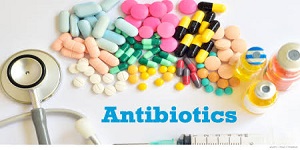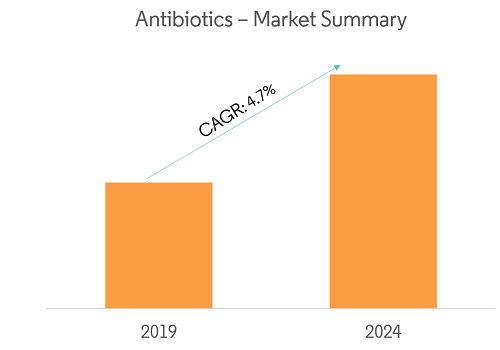
Antibiotics-2020

Theme: Antibiotics: Use Wisely; Take Precisely
Our “Webinar on Antibiotics and Antimicrobial Resistance” has been completed successfully during June 22, 2020. Now, in connection to this we are organising “2nd Webinar on Antibiotics and Antimicrobial Resistance” presentation online on August 28, 2020 in Zurich, Switzerland. Antibiotics 2020 Webinar is arranged to unite scientists, researchers, teachers, business delegates, students and research associates to communicate about their experience, knowledge and also about on-going researches. This conference focuses on a wide array of sessions which are of scientific interest and also need of the hour which includes: Antibiotics – Antibiotics, Types of Antibiotics, Main applications of Antibiotics, Microorganisms Producing Antibiotics, Antibiotics for Emerging & Re-Emerging Diseases, Veterinary Antibiotics, Toxicity of Antibacterial Drugs, Next Generation Approaches, Industrial Scope of Antibiotics, Antibiotics and Public Health. This Antibiotics 2020 Online Conference is confident that it will definitely offer all participants an unforgettable experience in exploring new opportunities.
Session 01: Antibiotics
Antibiotics are the most important antimicrobial agents for fighting against bacterial, fungal activities or infections. Many antibiotics are also effective against protozoans and fungi; some are toxic to animals and humans also, even when given in therapeutic dosage. Three types of antibiotics are found as natural antibiotics which are produced by natural microorganisms via fermentation, semi-synthetic and synthetic antibiotics.
Antibiotics Webinar | Drug Resistance Webinar | Antibiotics Drugs Webinar | Antibiotic Resistance Webinar | Antimicrobials Webinar | Antibiotics Symposium | Antimicrobial Resistance | Antimicrobial Resistance Webinars
Session 02: Types of Antibiotics
Antibiotics belong to a category of antimicrobials, a larger group which also includes anti-viral, anti-fungal, and anti-parasitic drugs. The main classes of antibiotics are beta-lactams which again include penicillin, cephalosporins, macrolides, fluoroquinolones, sulphonamides, tetracyclines and aminoglycosides.
Antibiotics Webinar | Drug Resistance Webinar | Antibiotics Drugs Webinar | Antibiotic Resistance Webinar | Antimicrobials Webinar | Antibiotics Symposium | Antimicrobial Resistance | Antimicrobial Resistance Webinars
Session 03: Main Applications of Antibiotics
A large number of bacterial diseases have been brought under control by using antibiotics. These include pneumonia, cholera, tuberculosis and leprosy. The antifungal antibiotic griseofulvin will control the debilitating fungal skin diseases such as ring worm. There are certain antibiotics which can be used in canning industry or antibiotics such as penicillin, tetracycline and erythromycins are very widely used in processing of animal feeds.
Antibiotics Webinar | Drug Resistance Webinar | Antibiotics Drugs Webinar | Antibiotic Resistance Webinar | Antimicrobials Webinar | Antibiotics Symposium | Antimicrobial Resistance | Antimicrobial Resistance Webinars
Session 04: Microorganisms Producing Antibiotics
Most of the antibiotics used today are from the microorganisms that live in soil. Microorganism from soil had always been the primary source for production of antibiotics and still continues to maintain its significance. Its importance, over the antibiotic effect, seems to be more significant than in was believed.
Antibiotics Webinar | Drug Resistance Webinar | Antibiotics Drugs Webinar | Antibiotic Resistance Webinar | Antimicrobials Webinar | Antibiotics Symposium | Antimicrobial Resistance | Antimicrobial Resistance Webinars
Session 05: Antibiotics for Emerging and Re-Emerging Diseases
Emerging and Re-Emerging infectious diseases are global problems, and constant supplies of new antibiotics are essential to combat these diseases successfully. In some cases antibiotic agents can connect with different drugs or substances. The new type of antibiotic is expected to avoid some problems of conventional antibiotics such as development of resistant strains, expression of various toxins, and disruption of normal microbial flora. The impact of the emerging and re-emerging diseases has been massive at socio-economic and public health levels and it presents a great challenge for the future. Their control requires continuing surveillance, research and training, better diagnostic facilities and remodeled, and well-equipped public health system.
Antibiotics Webinar | Drug Resistance Webinar | Antibiotics Drugs Webinar | Antibiotic Resistance Webinar | Antimicrobials Webinar | Antibiotics Symposium | Antimicrobial Resistance | Antimicrobial Resistance Webinars
Session 06: Veterinary Antibiotics
Antibiotics are commonly used in veterinary medicine to treat infectious diseases that are caused by bacteria and certain other microorganisms. Antibiotics are part of sustainable production. Antibiotics prevent animal suffering and give to farm animals keep them healthy, which makes healthy food. Metaphylaxis antibiotics, should be prescribed on the basis of clinical findings about the progress of a disease in certain herd or flock when it is necessary.
Antibiotics Webinar | Drug Resistance Webinar | Antibiotics Drugs Webinar | Antibiotic Resistance Webinar | Antimicrobials Webinar | Antibiotics Symposium | Antimicrobial Resistance | Antimicrobial Resistance Webinars
Session 07: Toxicity of Antibacterial Drugs
Therapeutic antibacterial drugs are considered among the safest of pharmaceuticals but this was not always the case. Prior to the discovery of penicillin and, subsequently, other antibiotics, the safety profile of antibacterial drugs are more closely resembled that of today's cytotoxic, chemotherapeutic agents used in oncology with narrow therapeutic windows and considerable side effects. As newer antibacterial drugs are being designed to be more pathogen specific, the expectation is that these future drugs should have even better safety profiles than today's therapeutics.
Antibiotics Webinar | Drug Resistance Webinar | Antibiotics Drugs Webinar | Antibiotic Resistance Webinar | Antimicrobials Webinar | Antibiotics Symposium | Antimicrobial Resistance | Antimicrobial Resistance Webinars
Session 08: Next Generation Approaches
The study of antibiotic resistance has grown from focusing on single pathogenic organisms in axenic culture to studying antibiotic resistance in pathogenic, commensal and environmental bacteria at the level of microbial communities. The increasing fear of drug-resistant is leading to a growing push for the next generation of antibiotics. The development of new antibiotics is determining to controlling current and future infectious diseases caused by antibiotic-resistant bacteria. The researchers now plan on studying the bacteria and decide what tools might be able to control its behaviour to release its full antibiotic potential. As the study of antibiotic resistance advances, it is important to incorporate this comprehensive approach to better inform global antibiotic resistance surveillance and antibiotic development.
Antibiotics Webinar | Drug Resistance Webinar | Antibiotics Drugs Webinar | Antibiotic Resistance Webinar | Antimicrobials Webinar | Antibiotics Symposium | Antimicrobial Resistance | Antimicrobial Resistance Webinars
Session 09: Industrial Scope of Antibiotics
Antibiotics can be used in non-medical industries. They are mainly used in animal husbandry, bee-keeping; fish farming and other forms of aquaculture, ethanol production, horticulture, antifouling paints, food preservation and many more.
Antibiotics Webinar | Drug Resistance Webinar | Antibiotics Drugs Webinar | Antibiotic Resistance Webinar | Antimicrobials Webinar | Antibiotics Symposium | Antimicrobial Resistance | Antimicrobial Resistance Webinars
Session 10: Antibiotics and Public Health
Antibiotics are strong medicines that treat bacterial infections. Common illnesses caused by bacteria are urinary tract infections, strep throat, pneumonia and more. Tetracycline is often used to treat acne and rosacea. Sulfonamides used to treat UTIs, bronchitis, eye and ear infections, pneumonia and bacterial meningitis. Cephalosporin can be used to treat UTIs, ear and skin infections, respiratory infections, bacterial meningitis, and sepsis. Overuse of antibiotics results in development of resistance bacteria which cannot respond to previously used antibiotics and this becomes a widespread problem for the public health.
Antibiotics Webinar | Drug Resistance Webinar | Antibiotics Drugs Webinar | Antibiotic Resistance Webinar | Antimicrobials Webinar | Antibiotics Symposium | Antimicrobial Resistance | Antimicrobial Resistance Webinars
Scope:
Increase in demand for antibiotics across many sectors has allowed for less expensive and off-label uses of drugs. Conversely, due to the enormous and irresponsible use of the antibiotics, has contributed significantly to the advent of the resistant strains. Production of new antibiotics was directly proportional to the development of resistant strains. However, the mainstream approach in fighting against the diseases is now focused on the modification of existing antibiotics to combat emerging and re-emerging resistance of pathogens globally. Because of antibiotic over usage, certain bacteria have become resistant to the most powerful antibiotics available today, this is called Antibiotic resistance. Some of the strongest Antibiotics include cephalexin, ciprofloxacin, metronidazole, azithromycin etc; Natural antibiotics include honey, cabbage, grapefruit seed extract extra virgin coconut oil etc. Antibiotics show effect after 24-48 hours. If not the bacteria could be resistant to that antibiotic, or it was not a bacteria.
Market Research Analysis:
The worldwide antibiotics market was valued at USD 42,653.89 million in 2018, and is estimated to be valued at USD 56,369.92 million in 2024, witnessing a CAGR of 4.7%. Some factors that are driving the market growth include the emergence of anti-MRSA drugs, development of generic drugs, and vulnerable aging population.
A company that initially produced the patented drug tries to generate utmost revenue before the patent expires. Once the patent expires, there will be several competitors who begin manufacturing the generic formulations. They have the same composition and same pharmacological activities as of the original drug. Almost 80% of the prescription antibiotics are generic. As a result of this, the price is reduced. Many people can afford drugs, thus, resulting in improved healthcare outcomes. However, using indiscriminate drug also leads to drug resistance and other complications.

World Wide Universities:
- Harvard University, USA
- University of Oxford, UK
- University of Washington, USA
- University of Toronto, Canada
- University of California, USA
- Swiss Federal Institute of Technology Zurich, Switzerland
- Massachusetts Institute of Technology, USA
- University of Queensland, Australia
- University of British Columbia, Canada
- National University of Singapore, Singapore
- University of Sydney, Australia
- Imperial College London, UK
- University of Tokyo, Japan
- Utrecht University, Netherlands
- Mc Gill University, Canada
- University of Cambridge, UK
- Stanford University, USA
- Cornell University, USA
- University of Copenhagen, Denmark
- University of Edinburgh, UK
Companies Related to Antibiotics:
- Pfizer, USA
- Merck & Co, USA
- Johnson & Johnson, USA
- Cubist Pharmaceuticals, USA
- Abbott Laboratories, USA
- Eli Lilly & Co, USA
- Melinta Therapeutics Inc, USA
- Novartis, Europe
- GlaxoSmithKline, Europe
- Bayer, Europe
- Allergan, Europe
- Roche, Europe
- Sanofi, Europe
- STADA Arzneimittel, Europe
- Shionogi & Co., Ltd, Japan
- Taisho Pharmaceuticals, Japan
- Daiichi Sankyo, Japan
- Meiji Holdings Company, Ltd, Japan
- Astellas Pharma, Japan
- Cipla, India
- Shanghai Pharmaceuticals, China
- Dr. Reddy’s Laboratories, India
- TaiGen Biotechnology, Taiwan
Conclusion:
The resistance to antibiotics, which is currently a severe global medical problem, may be partially dealt with by the implication of new concepts, such as biodegradable compounds; by exploring unconventional research paths; and by searching for compounds (e.g., advanced antisense) that can paralyze the ribosome by binding to peripheral ribosomal target sites. Many reasons are attributed to this grim scenario of drug discovery for new antibiotics. However the major one is the lacking interest of pharma companies. Finding it hard to recoup drug discovery costs from antibiotics which develop resistance within a decade or so, pharmaceutical companies preferably choose to invest in safer kind of drugs, such as antidepressants, statins and anti-inflammatory medications, which can bring steady flow of revenue, even in off-patent. Although, academic laboratories appear to continue their research efforts in looking for new drug leads, their efforts are inadvertently quashed by their inability to collaborate with the pharma companies for conducting high level pre-clinical research, and also their failure to transfer/license such technologies beyond academic laboratories.
Meetings International has taken an initiative to felicitate attendees with awards to recognise, celebrate and encourage achievement in its various conferences and events. The Excellence Awards is organized with the intention of valuing one’s contribution to the field and behind the idea of encouraging for more active involvement for the betterment of the industry as a whole. The concept shall motivate you to achieve more which will in turn benefit the industry and could lead towards a policy implementation in nurturing for a fruitful tomorrow.
Outstanding Speaker in Antibiotics 2020:
This award recognizes academic and business speakers for their excellent presentation skills. Our Antibiotics congress encourages young scientists, researchers, doctors across the globe to take part this prestigious event and the award will be given by session chair and co-chair.

Best Key Note Speaker Antibiotics 2020:
This award recognises the notable presentations given during the course of the event. It also recognizes the enthusiasm and determination of the speaker to improve the experience of all who they come into contact with. The award will be given based on the impact of presentation on the attendees of the Antibiotics Event. We will also be taking into account the references taken from the citations of the keynote speaker. This awardee will be felicitated by one of the members of the organizing panel present during the conference.

Best Organising Committee Member Antibiotics 2020:
This award seeks to recognise the continuous support provided by the Organising Committee Member of the conference. Recipient of this award will be selected by the operating committee of the Antibiotics Conference. The award will be given based on the support and cooperation provided by a member of the organizing panel from the beginning to the successful completion of the conference.

Outstanding Masters/Ph.D/PostDoc Thesis work presentation in Antibiotics 2020:
This award seeks to recognise the young brains of the current era. Recipient of this award will be selected by the judge of the Young Researchers Forum. Participants pursuing Masters, PhD or Post-Doctoral studies are eligible for this award. The Best YRF Award will be given to the most outstanding presentation presented by a participant who has registered under the student category

In order to identify best poster presentation from the poster session, conference organizing committee has appointed conference chair to evaluate the poster session, Antibiotics Conference Chair decides which poster presentation will receive the Best Poster Presentation Award.

When you want to be noticed with the content that counts, advertise with Meetings International and reach minds that matter. Meetings International is a global leader in producing high quality conferences and workshops in all major fields of science, technology and medicine.
Meetings International Conference websites are being visited by doctors, engineers, young and budding researchers, entrepreneurs, eminent scientists, academicians and Nobel laureates from various sectors of medical and non-medical sciences. We can target impressions of your advertisements by conferences subject or region and report results in comprehensive detail.
3rd World Congress on Antibiotics encourages various companies and small-scale businesses to digitally advertise their products and services on its web platform which will help in informing and attracting new customers quickly and efficiently. The size and diversity of our advertising options provide clients with the very best customized marketing opportunities. The advertising platform we provide you is the best chance of showcasing your products/services, and branding your company.
If you are looking for a global exposure for your products and services, this is the right place for you. Display advertising improves the visibility of your products and services among specialists in your field. Bring your product to life and create instant brand awareness with a banner ad placement. Make your banner interactive to direct people to where you want them to go. We offer banner ads on our website which will be beneficial for healthcare professionals across the globe.
Our subscribers and conference attendees can be your next enthusiastic customers. If you sell microbiology related products or provide relevant services, here is your opportunity to advertise in the website that can connect you to leading experts and science specialists worldwide.
Advertisement banner must be provided by the advertising company and must be in the jpg or jpeg format. The banner must be of high resolution and must not have copyright infringement.
In case you have any queries regarding advertising opportunities, please contact our representative: contact@meetingsint.com
Meetings International is announcing Young Scientist Awards through 3rd World congress on Antibiotics (Antibiotics 2020) which is scheduled at Zurich, Switzerland during June 22-23, 2020. This Antibiotics 2020 focuses on “Antibiotics: Use Wisely; Take Precisely”.
Antibiotics 2020 and upcoming conferences will recognise participants who have significantly added value to the scientific community of environmental science and provide them outstanding Young Scientist Awards. The Young Scientist Award will provide a strong professional development opportunity for young researches by meeting experts to exchange and share their experiences at our international conferences.
Antibiotics 2020 focuses mainly on Types of Antibiotics, Main Applications of Antibiotics, Microorganisms Producing Antibiotics, Antibiotics for Emerging & Re- Emerging Diseases, Veterinary Antibiotics, Toxicity of Antibacterial Drugs. 3rd World congress on Antibiotics is providing a platform for all the budding young researchers, young investigators, post-graduate/Master students, PhD. students and trainees to showcase their research and innovation.
Eligibility:
Young Scientists, faculty members, post-doctoral fellows, PhD scholars and bright Final Year MSc and M.Phil. candidates. Persons from Scientific Industry can also participate.
Benefits: The Young Scientist Feature is a platform to promote young researchers in their respective area by giving them a chance to present their achievements and future perspectives.
- Acknowledgement as YRF Awardee
- Promotion on the conference website, Young Researcher Awards and certificates
- Link on the conference website
- Recognition on Meetings Int. Award Page
- Chances to coordinate with partners around the world
- Research work can be published in the relevant journal without any publication fee
Criteria:
- All presented abstracts will automatically be considered for the Award.
- All the presentation will be evaluated in the conference venue
- All the awards will be selected by the judges of the award category
- The winners of the Young Scientist Award will receive award certificate.
- The awards will be assessed as far as plan and format, intelligence, argumentation and approach, familiarity with past work, engaging quality, message and primary concerns, parity of content visuals, and by and large impression.
Guidelines:
- All submissions must be in English.
- The topic must fit into scientific sessions of the conference
- Each individual participant is allowed to submit maximum 2 papers
- Abstract must be submitted online as per the given abstract template
- Abstracts must be written in Times New Roman and font size will be 12
- Abstract must contain title, name, affiliation, country, speakers biography, recent photograph, image and reference
Conditions of Acceptance:
To receive the award, the awardee must submit the presentation for which the award is given, for publication at the website, along with author permission. Failure to submit the PPT and permission within the designated timeframe will result in forfeiture of award.
Award Announcements:
Official announcement of the recipients will occur after the completion of Recycling Conference.
- Antibiotics
- Types of Antibiotics
- Main Applications of Antibiotics
- Microorganisms Producing Antibiotics
- Antibiotics for Emerging and Re-Emerging Diseases
- Veterinary Antibiotics
- Toxicity of Antibacterial Drugs
- Next Generation Approaches
- Industrial Scope of Antibiotics
- Antibiotics and Public Health
- Medical Microbiology Reports
- Journal of Pharmaceutics & Drug Delivery Research
- Journal of Pharmaceutical Sciences & Emerging Drugs































































































































